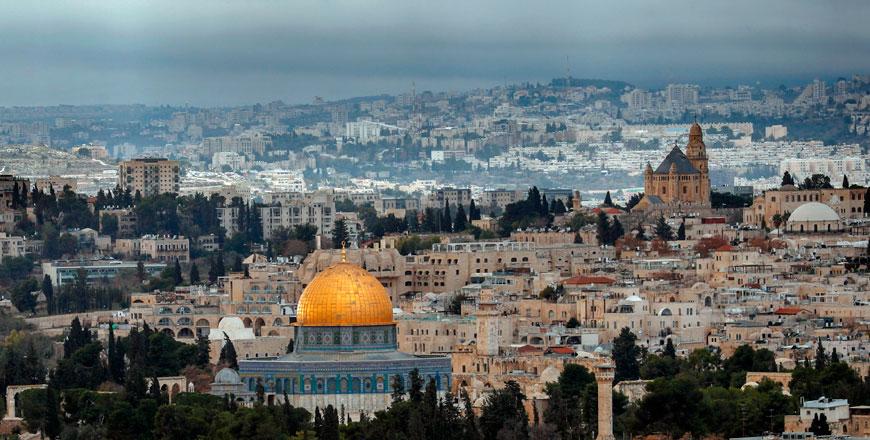You are here
Saudi, Palestinians agree on joint business council
By AFP - Oct 17,2019 - Last updated at Oct 17,2019

The players and coaches of the Saudi national football team pose for a group photo at Al Aqsa Mosque compound in the Old City of Jerusalem on October 14, 2019 (AFP photo)
RIYADH — Saudi Arabia and the Palestinians agreed on Thursday to establish a joint economic committee and a business council, as the Palestinian Authority faces a financing gap that could top $1.8 billion.
The PA has been in deep financial crisis since February when Israel froze transfers of VAT and customs duties it collects on the Palestinians' behalf.
Palestinian President Mahmoud Abbas' administration had to impose austerity measures, cutting almost half the salaries of its employees.
Abbas, who arrived in Riyadh on Wednesday, met with King Salman and Crown Prince Mohammed Bin Salman, according to the official Saudi Press Agency (SPA).
It added that the leaders reached "an agreement on the establishment of a joint economic committee and on a Saudi-Palestinian business council".
The report did not elaborate further.
The announcement came days after Saudi Arabia's football team played Palestine in the occupied West Bank for the first time on Tuesday, with the Saudi side having previously refused to enter the territory as part of its boycott of Israel.
Israel’s cuts have hit hard on the Palestinian occupied territories, already suffering unemployment of around 26 percent in the second quarter of 2019, the World Bank said last month in a report.
Israel collects around $190 million a month in customs duties levied on goods destined for Palestinian markets that transit through its ports, and it is supposed to transfer the money to the PA.
In February, Israel decided to deduct around $10 million a month from the revenues — the sum the PA paid inmates in Israeli jails or their families — prompting the Palestinians to refuse to take any funds at all.
US President Donald Trump’s son-in-law Jared Kushner during a conference in Bahrain dangled the prospect of $50 billion of investment into a stagnant Palestinian economy.
But the plan so far fails to address key issues such as an independent Palestinian state, Israeli occupation and the Palestinians’ right to return to homes from which they were expelled after Israel’s creation in 1948.
Related Articles
OCCUPIED JERUSALEM — Despite last month's receipt from Israel of funds it owed, the Palestinian Authority (PA) still faces a financing gap t
RAMALLAH, Palestinian Territories — The Palestinians on Monday restated their refusal to accept tax revenues collected on their behalf by Is
OCCUPIED JERUSALEM — Israel said on Sunday it would withhold millions more dollars worth of tax money it collects on behalf of the Palestini













